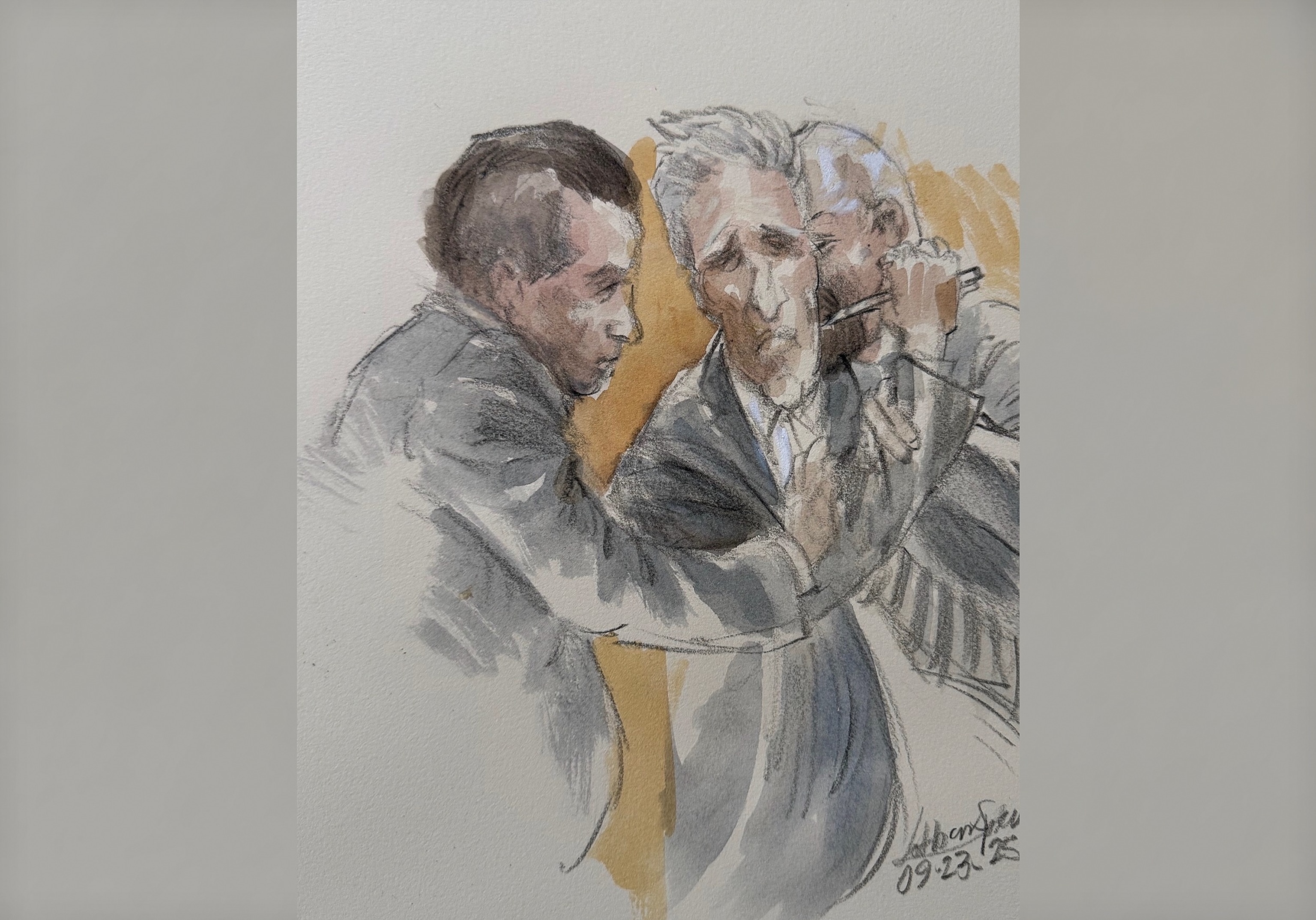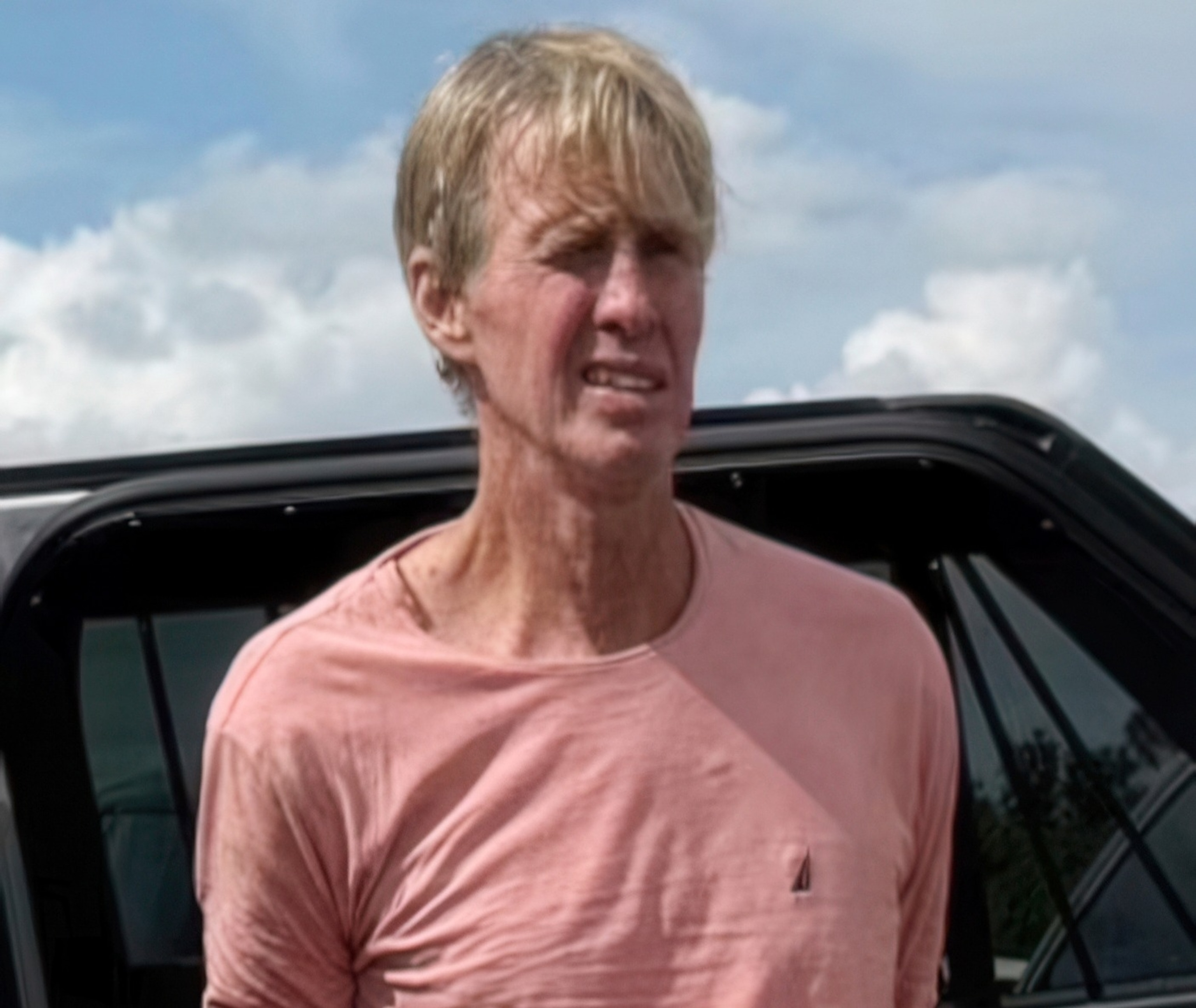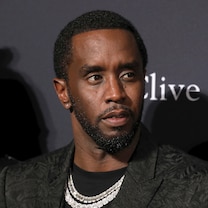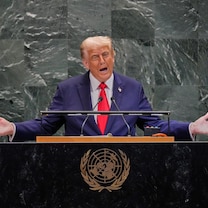Ryan Routh, would-be Trump assassin, tries to stab himself after being found guilty

Ryan Routh, the man accused of trying to assassinate Donald Trump on Trump's West Palm Beach golf course last year, has been found guilty on all five counts.
He was forcibly removed from the courtroom following the announcement of the verdict after sources say he tried to stab himself.
Routh attempted to stab himself in the neck with a pen amid the chaos after the verdict was handed down, according to sources. However the pen he had access to is specially designed not to injure, so it only left bruises or marks on his neck and he wasn't injured, a source said.
Four armed marshals surrounded Routh, who appeared to stand once the jury left the courtroom. Routh was then walked out of the courtroom.
Sara Routh, his daughter seated in the courtroom, shouted, "Dad, I love you. Don't do anything. I will get you out."
"He didn't hurt anybody. This is not fair. This is all rigged. You guys are a------s," she shouted before also being escorted from the courtroom.
U.S. District Judge Aileen Cannon subsequently allowed Routh back in the courtroom in shackles and escorted by marshals. He was informed that he will be sentenced on Dec. 18.

According to federal prosecutors, some of the jurors saw the outburst as they were exiting.
"The jury has not yet left the room at the time of the defendant's conduct," a prosecutor said.
Judge Cannon, who previously oversaw and dismissed one of Trump's criminal cases, thanked the lawyers and Routh for their time, "despite your outburst today."
Routh, who was representing himself despite lacking any legal education or experience, faced five criminal charges, including attempted assassination of a major presidential candidate, using a firearm in furtherance of a crime, assaulting a federal officer, possessing a firearm as a felon, and using a gun with a defaced serial number. He faces up to life in prison.
The jury reached their verdict after deliberating for approximately two hours. Their only note was a request to see the rifle, ammunition and magazine that Routh allegedly used.
Judge Cannon allowed the jurors to view the exhibits in open court.
Routh argued during his closing argument Tuesday that he did not intend to shoot Trump and that he lacks "the capacity to kill."
"The prime opportunity was there for the defendant to shoot the president," Routh said in a rambling, 55-minute closing argument. "Why was the trigger not pulled?"
Routh said that he never brandished his rifle to shoot either Trump or the Secret Service agent who spotted him, and he said any evidence suggesting otherwise was a "blatant fabrication."
"It was just an individual on the fence with a gun resting there," Routh told jurors.
Throughout his argument, Rough repeatedly claimed his "intent was harmless." He argued that killing Trump was a "fantasy," comparing the idea to longing for a high-end sports car, dreaming of a vacation home, or lusting for his best friend's wife.
"It was never going to happen," he told jurors. "It is not in the defendant's heart."
"The opportunity was there," Routh said. "It was so simple and easy -- just pull the trigger." And yet, said Routh, "This human being does not have the capability to shoot someone else."
Judge Cannon cut off Routh's closing about half a dozen times to remind the jury about their legal instructions, including two instances when she excused the jury so she could rein Routh in.
In a brief rebuttal, federal prosecutor John Shipley argued that Routh should be found guilty because he still took multiple steps to carry out his alleged assassination plot, casting doubt on Routh's central argument that he lacked the intention to actually shoot Trump.
"You've heard the evidence. This is not a peaceful and nonviolent man," Shipley said.
U.S. Attorney General Pam Bondi, posting to social media following the announcement of the verdict, wrote, "Today’s guilty verdict against would-be Trump assassin Ryan Routh illustrates the Department of Justice's commitment to punishing those who engage in political violence."
"This attempted assassination was not only an attack on our President, but an affront to our very nation itself," Bondi wrote.
Prosecutors allege that Routh put together a methodical plan -- including purchasing a military-grade weapon, researching Trump's movements, and utilizing a dozen burner phones -- to kill Trump based on political grievances.
Hiding in the bushes of Trump's Palm Beach golf course and armed with a rifle, Routh allegedly came within a few hundred yards of the then-presidential nominee before a Secret Service agent spotted his rifle poking out of the tree line.
Routh allegedly fled the scene but was later arrested by a local sheriff's office on a nearby interstate.
Routh spent three hours Monday presenting his defense case after prosecutors called more than three dozen witnesses over the last two weeks in the government's case.
Routh called a firearms expert and two of his longtime friends in his defense.

"Is it your personal opinion of me that I am peaceful and gentle, and nonviolent?" Routh asked his second witness, longtime friend Marshall Hinshaw.
"I would say so," Hinshaw said. "I would not expect you to harm anyone, Ryan."
Routh argued that he lacked the capacity to kill Trump, though he appeared to concede some of the prosecution's allegations during the trial. He acknowledged that he authored a letter that prosecutors say outlined his plans to kill Trump.
He was cut off multiple times Monday by Judge Cannon, who ended the day with a warning for Routh ahead of Tuesday's closings.
"Any argument you make ... must be reasonably tied to the admitted evidence. Do you understand?" the judge asked Routh, saying that any deviation will "cause a problem."
"Yes, your honor," Routh said.
ABC News' Luke Barr and Pierre Thomas contributed to this report.
ABC News








